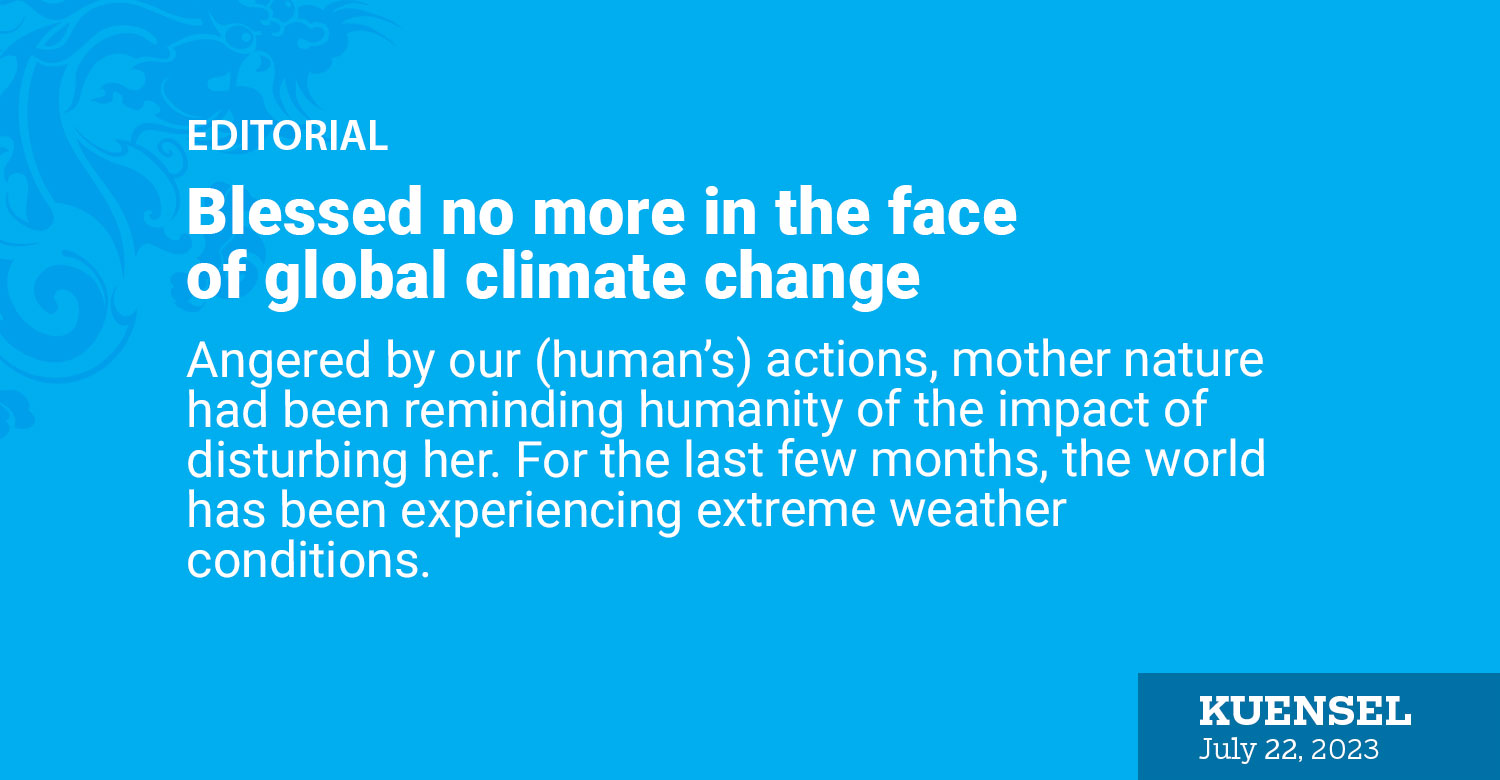Angered by our (human’s) actions, mother nature had been reminding humanity of the impact of disturbing her. For the last few months, the world has been experiencing extreme weather conditions.
We have seen it happen closer to home. Incessant rain in parts of north India led to flooding that damaged infrastructures, properties, and lives. The capital city, New Delhi, experienced its worst flooding in more than four decades. Bhutanese can relate to the mountainous state of Himachal Pradesh, Uttarakhand, Kashmir, etc. as we all share the same geographical locations in the heart of the eastern Himalayas, a fragile ecosystem.
Seeing these states recently experience the fury of natural disasters, many felt that it was a matter of when and not if Bhutan would see similar freak weather-induced conditions. Early yesterday morning, a flash flood struck Onggar chiwog in Lhuentse where 23 people reportedly went missing. Rescue operations are ongoing with the Prime Minister and relevant officials reaching the site hours after the disaster. The best we can hope is to find those who went missing. But what we have to realise is that we are no longer a blessed country in the face of natural disasters, especially induced by climate change.
As a nation, we have played our part. We are among the few countries that are carbon neutral. Unfortunately, climate change is a global phenomenon and the impact will not spare those not responsible for polluting or sequestering greenhouse gases from the atmosphere. And climate change is becoming evident every year. It is said that 2023 is the hottest year. June was recorded as the hottest month breaking previous records. July presented another problem.
Even as we try to recover the bodies of those who went missing in Lhuentse, Europe is experiencing the hottest summer, China is experiencing heatwaves and floods. In North America, Canada is fighting the worst wildfire in decades. Scientists say that the worst is yet to come with an El Nino effect already setting in. 2024, they predict, will be the hottest and driest year with prolonged drought in some and flooding in others.
Despite being known as a champion of environment conservation and a carbon-neutral country, we will not be spared from the impacts of climate change. In fact, it is said that islands and mountainous countries would bear the brunt of a slight change in global temperature. If it is rising sea level for the islanders, it is the melting glaciers, landslides, and flash floods that are a threat. We know that the impact of climate change is only going to get worse and it will not spare any nation on the planet Earth.
What we could do is prepare for the impending disasters. Adaptation and mitigation is the only way forward. Are we prepared? Is it a priority? As a country located in a fragile Himalayan ecosystem, we need to be more concerned about the impact of climate change. Beyond the flash floods and roadblocks, the impact is going to be severe. All we can do is believe in it and prepare accordingly. Compensating for lives lost or reconstructing damaged infrastructure is possible. There is an obligation for leaders to recognise it, prepare and act.


